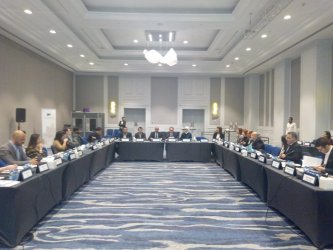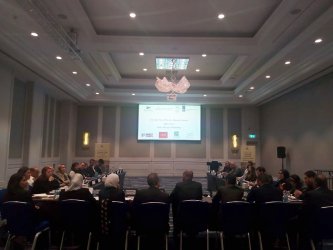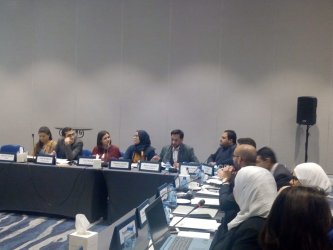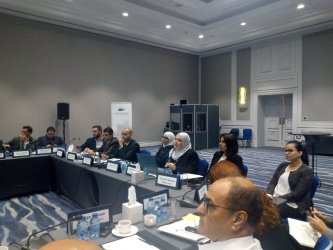-
End of project workshop: Towards More Effective Human ...
End of project workshop: Towards More Effective Human Security Approaches
A recent research project by the West Asia-North Africa (WANA) Institute provides insight into Human Security (HS) approaches that empower community stakeholders to participate in and contribute to security dynamics. How improved HS programming can address the drivers of violent extremism? How state-centric security policies (SSPs) impact the drivers of violent extremism; and how SSPs encourage or hinder successful HS programming?
Since September 2016, the WANA Institute has been leading the research and implementation of the regional project: “Towards More Effective Human Security Approaches in the Context of the Emerging Threat of Violent Extremism in Jordan, Lebanon, and Tunisia”. The project was implemented in 18 communities across Jordan, Lebanon and Tunisia, totalling 238 research activities with the participation of 1732 participant. Publications from this project are accessed here.
Communities of study understand HS in two forms: services that meet their basic human needs, and abstract ideas that meet basic human values. Moreover, they define HS by its absence. Several Human Security programmes were implemented in the West Asia-North Africa (WANA) region since 2014 to prevent violent extremism. In most cases, these programmes were short-term and isolated in nature.
Although long-term HS programming is needed as mentioned by communities of study, most of them agreed that these programmes must be combined with state-centric security policies SSPs, which are desirable for short-term conflict containment. Further, not a single community across the three countries dismissed the need for balanced SSPs.
On the other hand, SSPs hinder the implementation of HS programmes in various ways including procedural and administrative restrictions on civil society, as well as access to employment opportunities.
The research highlights the role of marginalisation as one of the deep-seated root causes of conflict in the region, which results from human insecurity and feeds into de-stabilising dynamics like mistrust in the state and alliances to non-state actors who offer socioeconomic services and/or a space for political expression. The sense of marginalisation and alienation among citizens could be reinforced by excessive use of force, selective application of security measures, and constraints on freedoms of expression. In turn, this enhances the prospects of radicalisation. As a result, SSPs -procedural matters and legislative- can reinforce violent extremism.
On the other hand, successful HS programming can prevent violent extremism and go beyond that to address drivers of broader instability in the region. This includes drivers of social conflict, economic strife, challenges hindering representative and inclusive governance, as well as questions related to the social contract in countries of the region.




